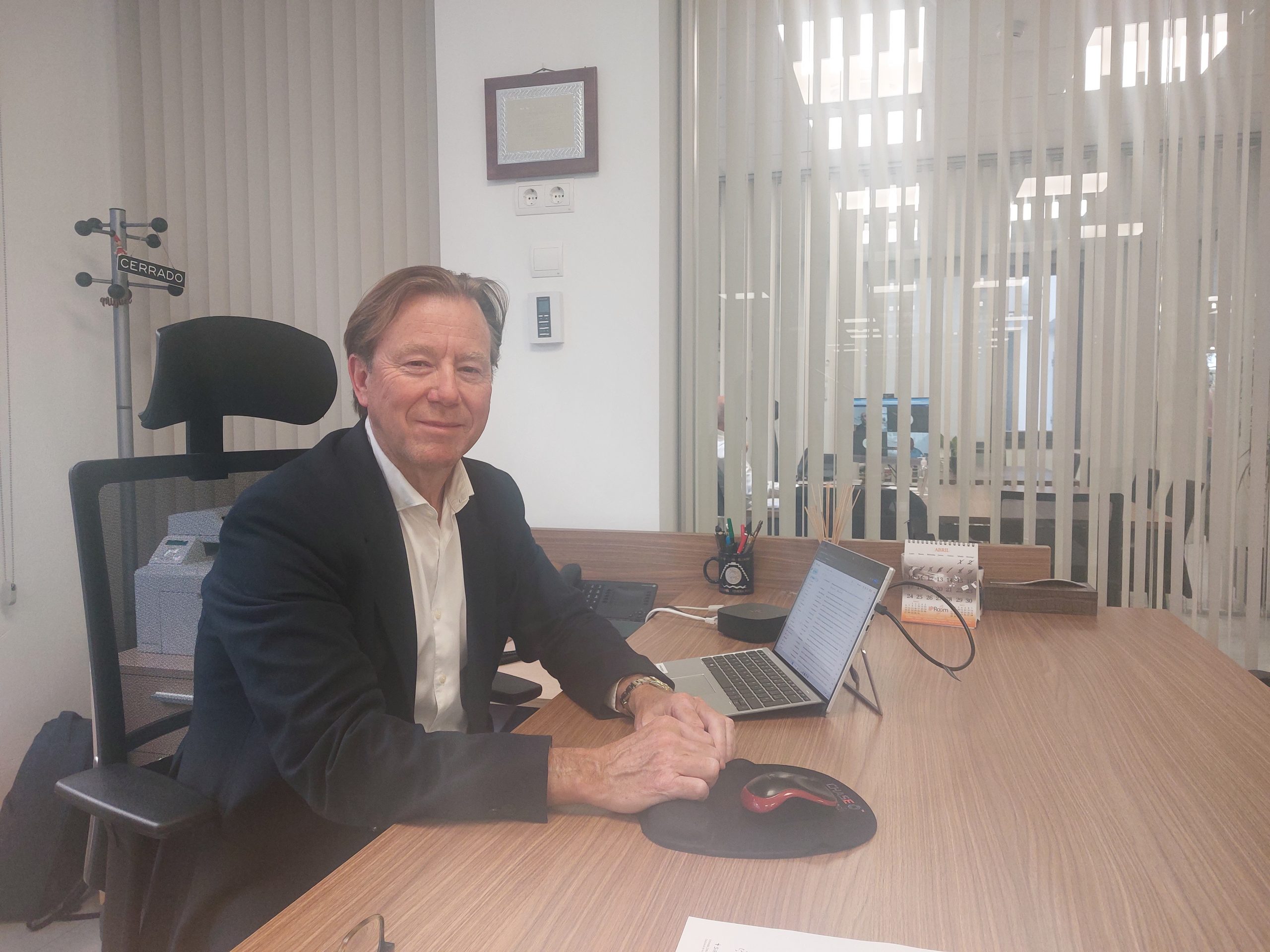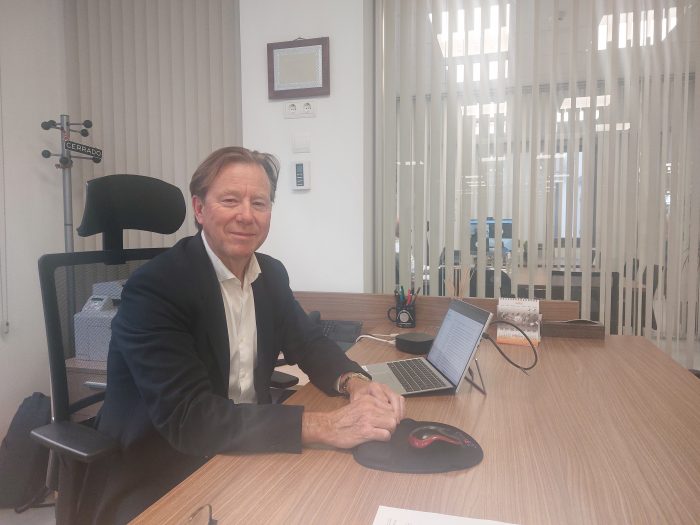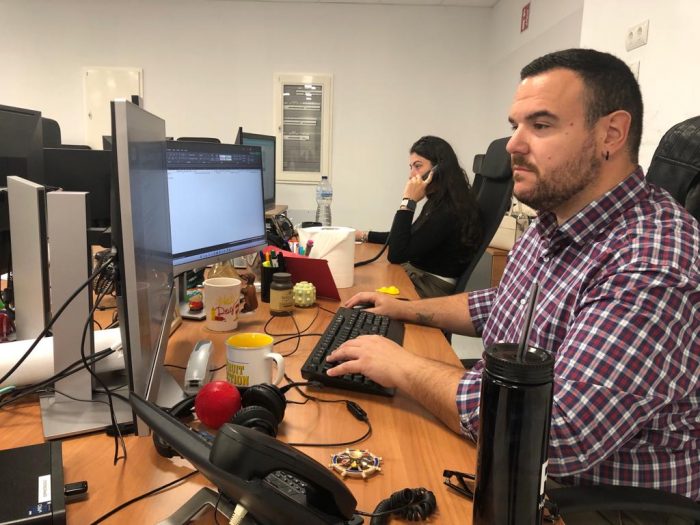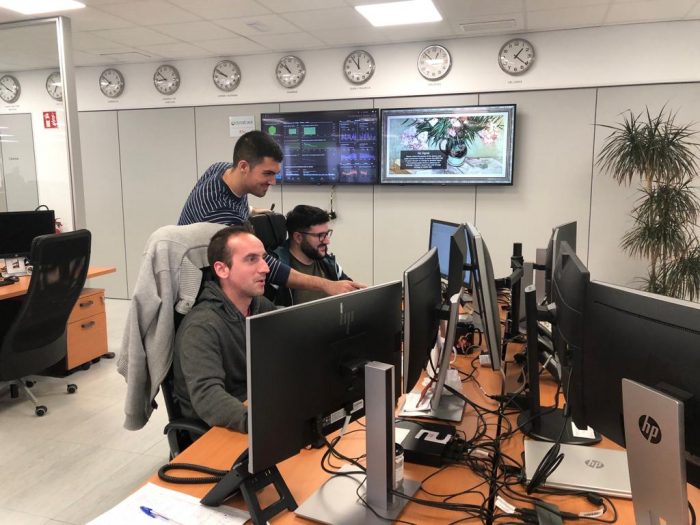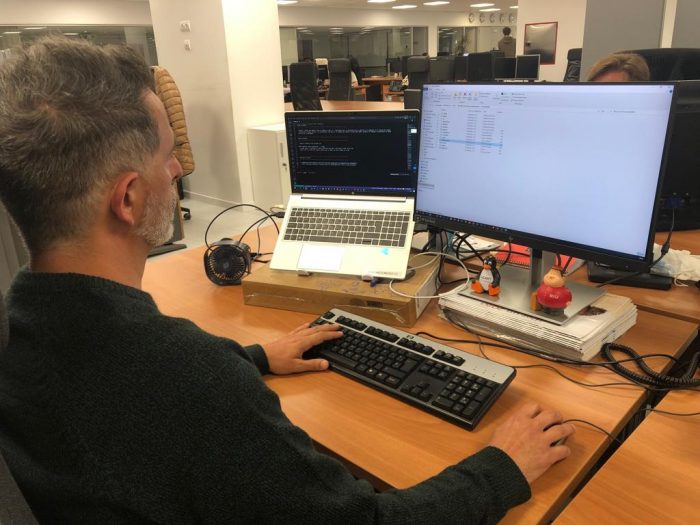Miguel Reynés: “All the people who work in IT are very well trained and totally dedicated to RIU”
19 April, 2023The star of today’s entry is Miguel Reynés, Chief Information Officer (CIO) at RIU. We had the pleasure of interviewing him so that he could tell us first-hand about the work he and his team do in the IT Systems department. Miguel Reynés started at RIU as head of the Riu Partner Club Project in 1993, later becoming head of Development until he was promoted to director. He is now in charge of controlling a key department for the company in which IT systems and new technologies play a fundamental role for all RIU’s workers and customers.
– The IT department is very extensive and is involved with many areas of the company. Before addressing all the functions you perform, tell us about the structure of your department.
To understand how the department works, it is important to know that we are organizationally divided into 8 major groups: Architecture. These are people who work very behind closed doors, they are in the kitchen, so to speak. In a way, they are the great ideas-makers, the ones who say how to resolve any problems that arise. Really, they create the plans showing which paths to follow, which others then implement.
Then there is the Development part that encompasses New developments, Operational Developments, and E-Commerce Developments. These are programmers and analysts. The task of the people who work in the Development areas is to understand the business and to adapt the programs from scratch during the production phase, both those created in-house and those developed by third parties. In this case they deal with the end user and are sectorised. In other words, some deal with the demands of the hotels, others with purchasing, others manage payment collection, administration and connectivity. Effectively, this means that they are divided into business areas and everyone is specialised in his or her own area.
On the other hand, we have Systems and Infrastructures. They are also “kitchen” people. They make sure that everything runs smoothly, that things work properly. For example, they ensure that the security system is functioning correctly and that passwords are not corrupted. It’s like the RIU engine room.
The Service Desk (GSU) is the communication door between the IT department and the day-to-day business, everything is channelled through here. They resolve eight out of ten incidents or problems. They know who to send the other 20% to.
Information Security is the area that sets out the policies, rules and procedures. In other words, this is where the security manuals, regulatory compliance, reputational image, phishing, and so on are developed.
And finally we have the Control personnel, who review the errors in the monthly telephone bills that arrive at RIU. All the chain’s communications pass through them, everything is received, validated and analysed by this department.
– Now that we know its structure, can you describe the human team that makes this department function? How many people work in IT services?
Most of the IT staff are based in the new offices in Playa de Palma, in the central offices located in the Riu Playa Park hotel. There are more than 200 internal professionals in IT (plus about thirty subcontractors), and only about forty currently live outside Mallorca.
All the people who work in IT are very well trained and totally dedicated to RIU. They have a deep understanding, not only of the technology but also of the business. Most important of all, they understand that we are a service department that is becoming increasingly necessary. For all these reasons they are people who deserve all my admiration and affection, as well as my respect for how they carry out their outstanding work.
– We know that you face many challenges on a day-to-day basis. How would you explain IT’s role in the company?
It is increasingly essential. Today almost everything runs on technology in one way or another and any issue that is solved using technology is handled by our department. In IT we are aware that, like electricity or water, systems and technology in general must always be in good working order. If this were not the case, it would cause a huge problem that would negatively impact the business.
– Considering the challenges you face, how do you organise yourselves to meet the demands of both hotels and offices?
We clearly separate the functions between two areas: demand and factory. The first includes all the activities that have to do with projects, requests for improvements or modifications, things that allow the company to evolve. For example, a change in the RIU website or in the email system.
Meanwhile, factory encompasses everything that has to do with day-to-day business. For example, troubleshooting or confirming that the networks are working properly, even if no-one has asked for anything specific. In other words, we have to make sure that what is already running smoothly continues to work and that what is no longer working is fixed.
– Technology is very much part of our daily lives and we are often unaware of its dangers. How do you train employees to prevent cyberattacks? I understand that in such a large company it is difficult to control this type of threat. What other dangers like this do you face?
Because of the current situation we are living in, all companies are currently exposed to information security incidents, and RIU is no exception. In our case, the use of stricter policies, regulations and procedures for users mitigates these risks.
When we talk about dangers, we should not only think about “viruses” that collapse systems. There are other malicious external actions aimed, for example, at illegally obtaining personal information or impersonating us through malicious emails.
We carry out annual audits, secret ethical hacking actions, present regulatory reports to certifying bodies, and so on. But despite everything we do it is never enough. The threat of attacks is always present and keeps us on our toes.
– How important is technology in marketing? And in customer contact?
Technology is playing an increasingly important role in marketing because it enables the company to remain in direct contact with agents and with people, in other words, B2B and B2C. Today, thanks to technology, it is easy to sell your product anywhere in the world and get paid in advance. This makes it even more important to have a large and responsive team, in perfect harmony with the business, if we want to keep on selling more through this channel. And we are on that path.
– And behind closed doors, how does technology affect employees, the way they work and communicate?
If I am talking about my department, it affects absolutely everything. Technology enables people to communicate and collaborate remotely. In this sense, the most important things are to preserve access security (that people enter only where they should and can) and information security (to encrypt what travels through the network from any point), and to ensure that productivity is achieved.
As an anecdote, most of my team members do not even get up from their desks to communicate with each other, they do it via chat or videoconferencing tools. I particularly prefer the personal approach.
– You played a fundamental role in the company during the pandemic when all the employees had to work from home. How did that moment feel, when all eyes were on you?
I felt responsibility and respect. Just like all the other workers at RIU, but with the added responsibility of knowing that we had to ensure that our colleagues, as well as all of us, could continue to work remotely. That responsibility was shared, understood and successfully executed, for which I thank everyone who contributed for the enormous effort they put in.
– What role has the pandemic played in the technological transformation of the company?
Some initiatives are here to stay as they provide another way to solve problems and processes. Technology is being used more rationally and certain functions have been transferred to customers and employees through the use of apps and mobile device solutions. Ultimately, processes in which there was no added value in the fact that they were being carried out by people, have now been taken over by machines.
– What are the department’s most important projects for 2023?
The main ones are technological evolution projects in terms of websites and apps. There is also the implementation of a new corporate budgeting program and the development of a database of employees who can use the various apps from different departments. But this is just a snapshot of the 40-plus projects we are developing this year.
– To close this interview, we would like you to tell us: where is RIU going in terms of technology?
Where it needs to. Taking advantage of existing good solutions on the market that should be integrated with those that need to be developed in-house and which add value to the business. Using mature technology that offers advantages to customers and employees in terms of productivity, in other words, following the company’s strategic lines and its basic principles, not inventing but rather adopting mature technologies and solutions that add value to the business.
